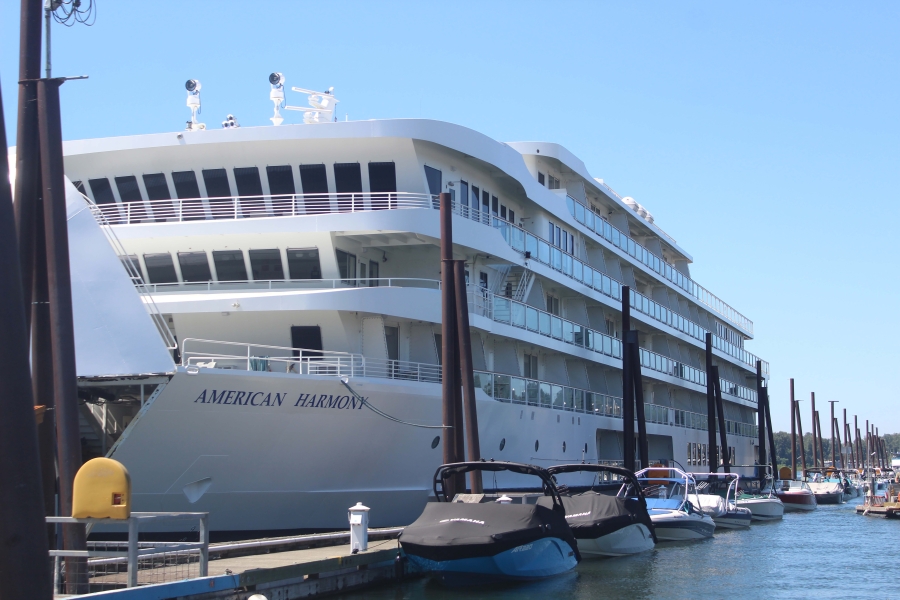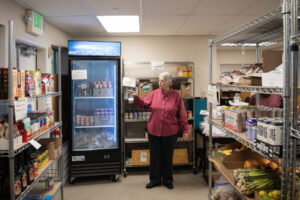The Port of Camas-Washougal has extended its partnership with American Cruise Lines (ACL) despite concerns about the cruise line’s economic impact and commitment to sustainability.
Port commissioners approved a docking agreement with ACL for 2025 and 2026 on July 17, three months after green-lighting a similar one-year contract to bring the Connecticut-based cruise line to the Washougal waterfront for the 2024 summer season.
The new contract calls for ACL to dock at the Port approximately 90 times per year, identical to its current schedule, and pay the Port a docking fee of $2.75 per linear foot per vessel per stop, a 25-cent increase from 2024. The agreement is expected to generate about $140,000 for the Port, according to a staff report.
“(The rate) went up 10 percent, and that puts us pretty high on the Columbia River in terms of rates,” the Port’s business development director, Derek Jaeger, said during the meeting. “But they’re agreeable to that.”
“It’s not ‘big’ money,” Port of Camas-Washougal Commissioner Cassi Marshall replied, “but it’s money.”





